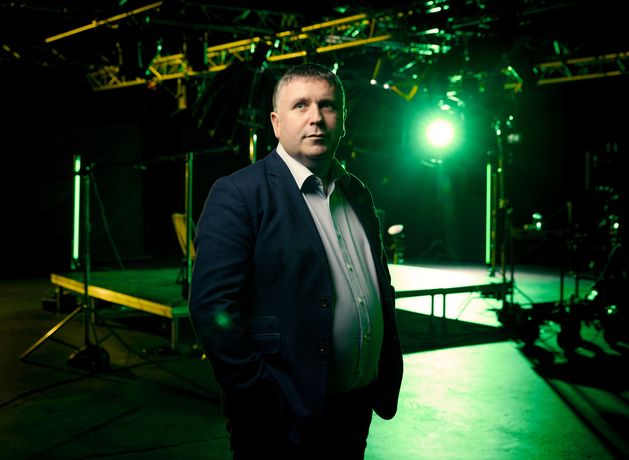‘We need to look at this as an investment in the jobs of the future’ says tech boss
That’s according to Jason Lynch, the CEO of Dublin-headquartered Equal1, whose firm is a global leader in designing silicon-powered quantum computing technology.
“We need to look at this as an investment in the jobs of the future,” he says.
‘If we close the door now I think we will do serious harm’
“We should look to become the leaders in sustainable data centres, and in three to five years I believe quantum computing will bring huge advantages in this regard and ensure that data centres are much more sustainable.
“But if we close the door now I think we will do serious harm – and the country could miss out on a massive opportunity to attract the next generation of technology,” he adds.
Equal1 is bidding to become the Intel of the quantum computing world, he says.
Quantum solutions could reduce the amount of energy that AI consumes. Graphic: Getty
The firm, which was founded six years ago and which has previously raised €35m, is currently preparing for a significant new fundraising round – likely to be in the tens of millions.
This new round of fundraising will probably be completed within six months he said.
Its UnityQ technology is the world’s first hybrid quantum-classical silicon-on-chip, which, he says, allows for adoption of the power of quantum technology into existing real-world scenarios.
“The reason this company was started was really to build on the promise of what quantum computing can do, which is an exponential increase in the power of what we can do with computers,” Lynch says.
‘It is a quite disruptive approach in quantum’
The key innovation in a quantum computer is a qubit – or quantum bit – which replaces chip technology based on ones and zeros that is found in so-called “classical” computer chips. Equal1 has designed qubits that are manufactured from extremely small transistors.
“What that then enables us to do is essentially to leverage all of the previous innovation of the chip manufacturing and the chip design industry. It is a quite disruptive approach in quantum,” Lynch says.
The new fundraising should allow the company to further increase the number of qubits it can utilise on a chip.
“A lot of other companies are trying to build new manufacturing processes that would scale these qubits.
“If we can get these qubits working on existing manufacturing processes that means we can build quantum computers in much smaller form factors, and at a completely different price point,” he says.
There has been increasing resistance in Ireland to the building of new data centres because of the huge amount of energy that each one consumes.
But quantum innovation will provide a step-change in innovation for data centres, making them more sustainable by using 20 times less energy, explains Lynch. “And we think that’s only the beginning,” he says.
The technology has major benefits for implementing artificial intelligence in a more sustainable way, by reducing the energy it requires within data centres.
It also has massive potential for drug discovery in the pharma sector because of the way quantum can mimic the actions of molecules, thus allowing pharma companies new ways of testing innovative drugs.

